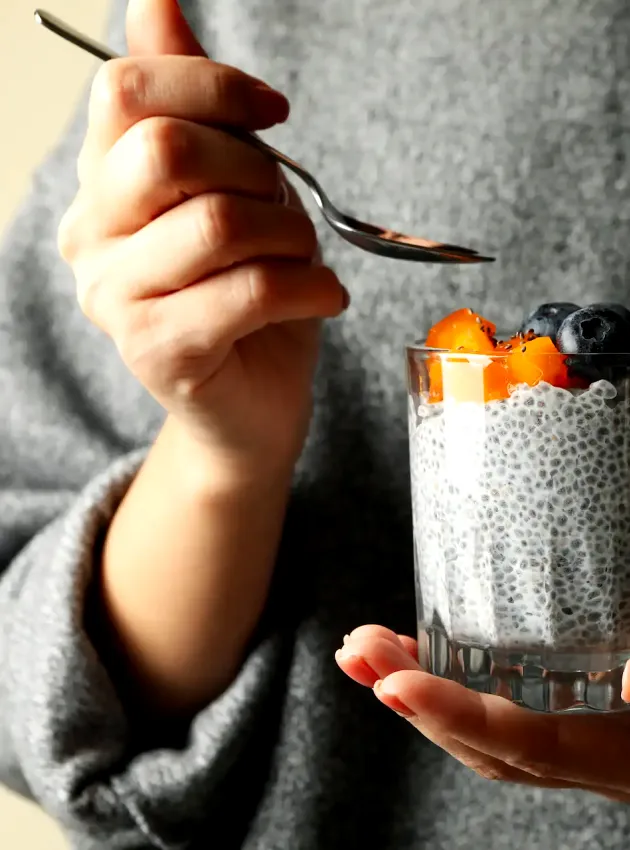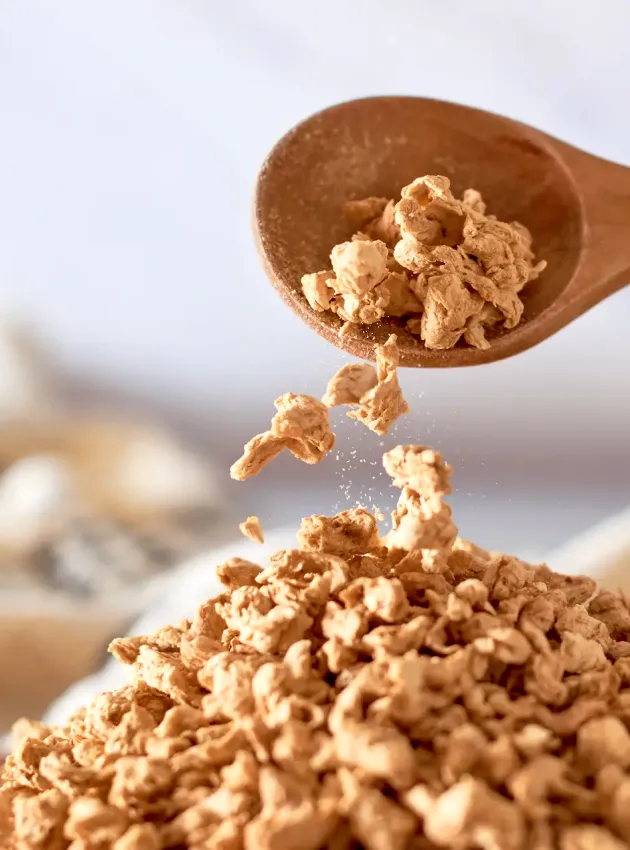
Whether it’s to better manage diabetes, support weight loss, or simply improve eating habits, reducing your carbohydrate intake can be an interesting option. However, it’s important to remember that an overly restrictive approach can lead to frustration and be difficult to maintain in the long term. It’s essential to listen to your body’s needs and make choices that work for you.
In this article, learn what carbohydrates are, their impact on our health, and practical tips to moderate your intake without depriving yourself, all while respecting your dietary preferences.
What Are Carbohydrates?
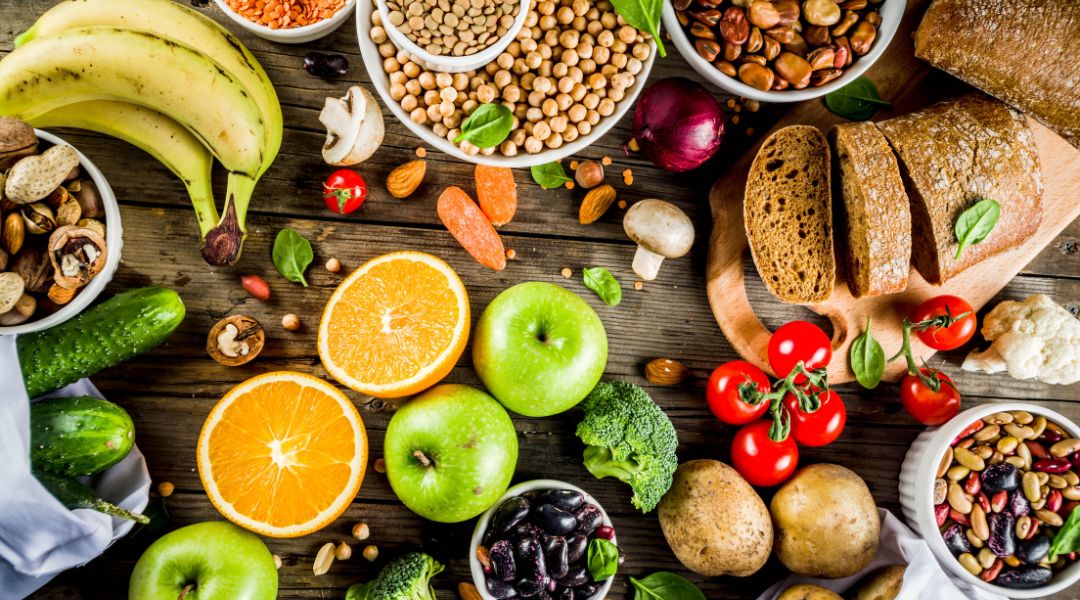
Carbohydrates are the body’s primary energy source and play an essential role in a balanced diet. During digestion, carbohydrates are converted into glucose, helping to maintain adequate energy levels when they come from healthy food sources and are consumed in appropriate amounts (1). Carbohydrates can be found in fruits, vegetables, grains, legumes, and sugary products, and they are divided into three categories:
- Simple carbohydrates: These carbohydrates, quickly absorbed by the body, are found in various foods, including the natural sugars in fruits as well as added sugars in processed products. They play a key role in providing a fast and efficient source of energy, particularly useful during a workout session (2).
- Complex carbohydrates: These provide more sustained energy due to slower digestion and are present in foods like bread, pasta, or starchy vegetables (3).
- Dietary fibre: Fibre is non-digestible and does not directly affect blood sugar levels. It slows the absorption of other carbohydrates and contributes to feelings of fullness (4). Fibre is found in whole grains, bran, lentils, dry beans, nuts, and seeds.
Benefits of Reducing Your Carb Intake

Reducing sugar consumption offers several health benefits. Lowering free sugar intake can help prevent obesity, type 2 diabetes, and dental cavities. The World Health Organization recommends limiting free sugars to less than 10% of total energy intake to reduce these risks (5). Adopting a diet lower in sugar promotes overall better health.
Tips from Our Dietitians and Nutritionists to Eat Fewer Carbs
1. Choose Complex Carbohydrate Sources
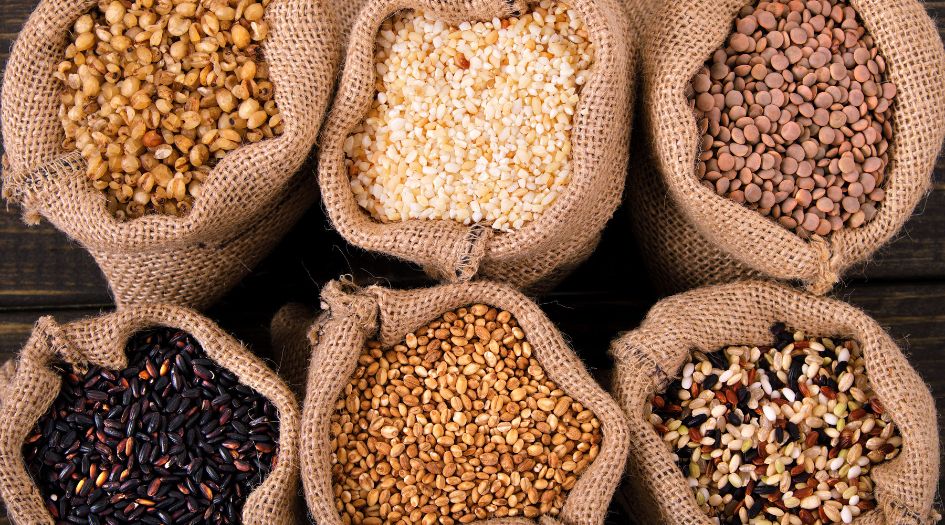
Complex carbs, such as those found in whole grains and legumes, are absorbed more slowly by the body, providing longer-lasting energy.
Replacing refined carbohydrates like white bread and white pasta with whole-grain alternatives, such as whole-wheat bread or pasta, can better stabilize blood sugar levels. By prioritizing complex carbs, you’ll find it easier to maintain stable energy throughout the day (6).
2. Swap Sugary Drinks for Low-Carb Alternatives

Sugary drinks like juices and sodas are often significant sources of carbohydrates and added sugars. These sugars cause a rapid spike in blood sugar followed by a sudden drop, which can result in a dip in energy and feelings of fatigue (7).
To avoid these effects, opt for alternatives such as tea, herbal tea, unsweetened coffee, sparkling water, or water naturally flavoured with slices of fruit or fresh herbs.
3. Opt for Low-Carb Desserts

Many people have a sweet tooth, making it hard to give up favourite desserts. With the help of TeamNutrition’s recipe section, many dessert ideas have been reinvented by our dietitians and nutritionists to satisfy sweet cravings while encouraging homemade cooking.
Before choosing a dessert, make sure you’re truly hungry. Mindful eating helps better meet your body’s needs. Desserts rich in fibre and protein can regulate blood sugar, prolong satiety, and support digestive health (8).
4. Focus on Low-Carb Vegetables
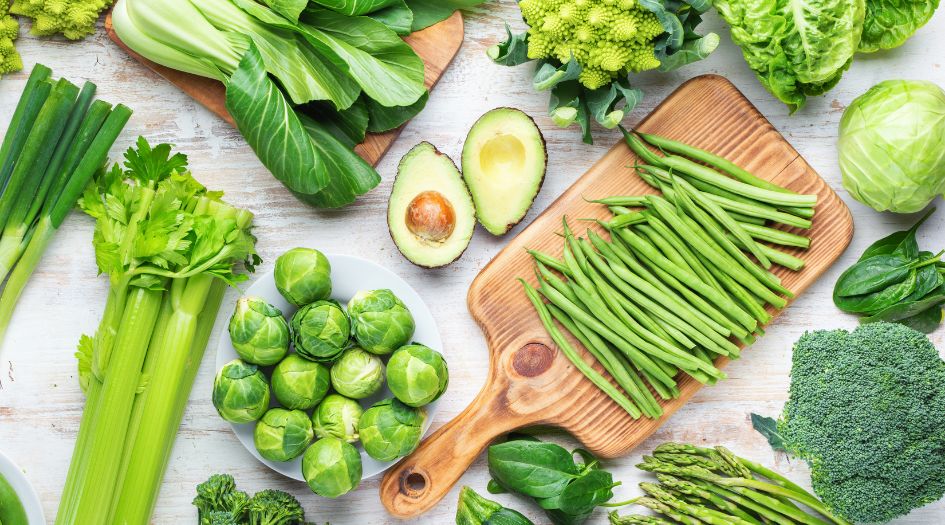
Vegetables are indispensable in a balanced diet and should typically make up half of your plate. Some vegetables, like leafy greens (spinach, broccoli, green peppers, zucchini), are particularly low in carbs while being rich in fibre, helping maintain a sense of fullness.
However, some vegetables act as starches and are higher in carbs, so it’s best to limit their intake. Examples include plantains, winter squash, corn, sweet potatoes, and regular potatoes (9).
For more ideas and inspiration, check out our article 4 Tips for Adding More Vegetables to Your Plate.
5. Plan Your Meals to Avoid Last-Minute Choices

Meal planning is an excellent strategy to reduce carbohydrate intake while maintaining a balanced diet. Spending a few minutes organizing your weekly meals will prepare you to make healthier choices and avoid quick options that are often higher in carbs. Having well-balanced carb alternatives on hand also reduces the risk of turning to less optimal options.
This approach applies to snacks too! Planning healthy, low-carb snacks is an effective way to curb cravings. Here are a few accessible snack ideas:
Finding Balance Without Deprivation

Reducing carbohydrate intake doesn’t mean giving up everything you love. With thoughtful choices and by listening to your body’s signals, it’s possible to achieve a satisfying and sustainable dietary balance.
If you have questions about reducing carbs or are seeking personalized support, book an appointment with a registered dietitian nutritionist for advice tailored to your lifestyle.
References
Institut canadien du sucre. (n.d.). La digestion et l’absorption des glucides. Accessed on November 23, 2024. https://www.sugar.ca/sugars-health/carbohydrate-digestion-and-absorption?lang=fr
Levin R. J. (1994). Digestion and absorption of carbohydrates--from molecules and membranes to humans. The American journal of clinical nutrition, 59(3 Suppl), 690S–698S. https://doi.org/10.1093/ajcn/59.3.690S
Fédération Française des Diabétiques. (n.d.). Les glucides. Fédération Française des Diabétiques. Accessed on November 19, 2024. https://www.federationdesdiabetiques.org/diabete/alimentation/glucides#:~=Les%20glucides%20complexes%20sont%20dig%C3%A9r%C3%A9s,plus%20rapidement%20par%20l'organisme.
Fondation canadienne de la santé digestive. (2023, March 28). Quels sont les effets des fibres sur la santé digestive ? Accessed on November 23, 2024. https://cdhf.ca/fr/quels-sont-les-effets-des-fibres-sur-la-sante-digestive/
Organisation mondiale de la Santé (OMS). (2015, March 4). WHO calls on countries to reduce sugars intake among adults and children. Accessed on November 21, 2024. https://www.who.int/fr/news/item/04-03-2015-who-calls-on-countries-to-reduce-sugars-intake-among-adults-and-children.
Després, J.-P. (2021, June 24). Bien choisir ses sources de glucides est primordial pour la prévention des maladies cardiovasculaires. Observatoire de la prévention. Accessed on November 25, 2024. https://observatoireprevention.org/2021/06/24/bien-choisir-ses-sources-de-glucides-est-primordial-pour-la-prevention-les-maladies-cardiovasculaires/
Institut national de santé publique du Québec (INSPQ). (2017, March 2). Consommation de sucre et santé : état des connaissances. Accessed on November 21, 2024. https://www.inspq.qc.ca/sites/default/files/publications/2236_consommation_sucre_sante_0.pdf.
Swissmilk. (2019). Consommation de protéines et régulation de la glycémie [PDF]. Accessed on November 23, 2024. https://api.swissmilk.ch/wp-content/uploads/2019/05/informations-speclialisees-consommation-de-proteines-et-reguletion-de-la-glycemic-nutrition-fr.pdf
Diabète Québec. (2018). Les féculents. Diabète Québec. Accessed on November 19, 2024. https://www.diabete.qc.ca/le-diabete/la-gestion-du-diabete/alimentation/les-feculents/

